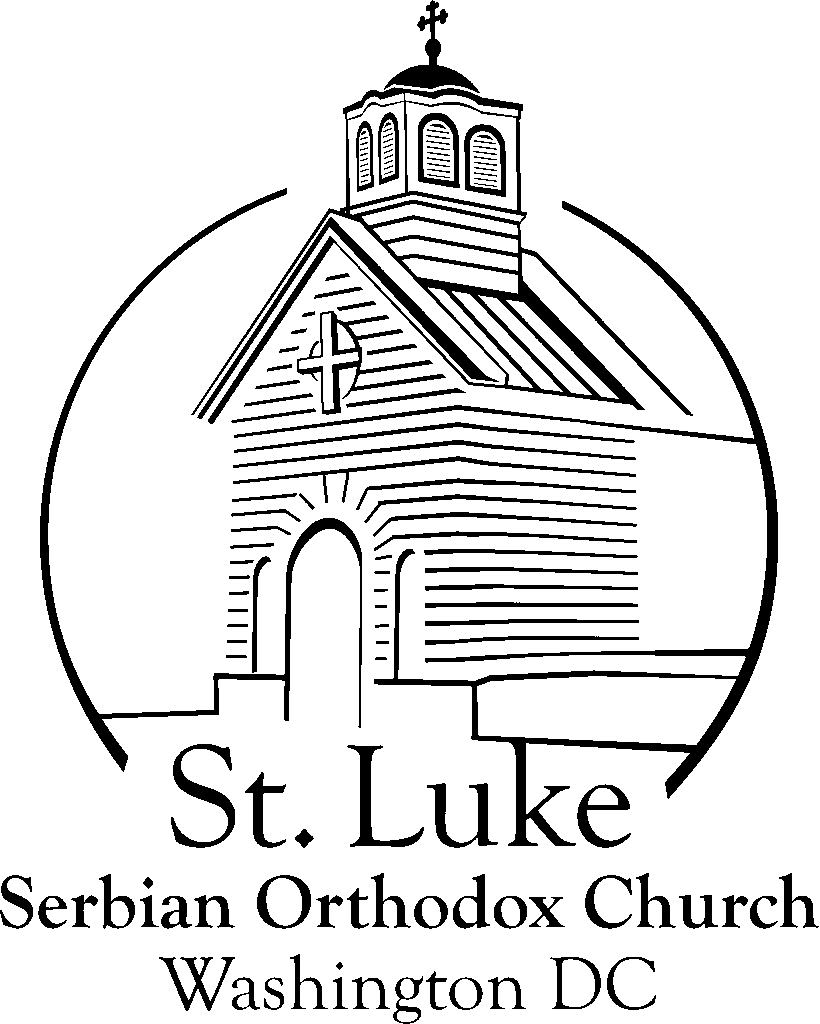
Join us tonight, Wednesday, April 28th at 6:00 P.M. for the Sacrament of Holy Unction, the Sacrament of Healing.
+++
Придружите нам се вечерас, у среду, 28. априла у 18:00 часова на Светој тајни Јелеосвећења.
HOLY UNCTION
Christ came to the world to “bear the infirmities” of men. One of the signs of his divine messiahship was to heal the sick. The power of healing remains in the Church since Christ himself remains in the Church through the Holy Spirit.
The sacrament of the unction of the sick is the Church’s specific prayer for healing. If the faith of the believers is strong enough, and if it is the will of God, there is every reason to believe that the Lord can heal those who are diseased.
Is any among you sick, let him call for the presbyters of the church, and let them pray over him, anointing him with oil in the name of the Lord; and the prayer of faith will save the sick man, and the Lord will raise him up; and if he has committed sins, he will be forgiven. Therefore, confess your sins to one another and pray for one another, that you may be healed (Jas 5.14–16; see also Mk 6.13).
The sacrament of anointing is a “sobornal” sacrament in the traditional Orthodox practice. This means that as many of the faithful as possible are gathered to participate in the prayers. The rite itself calls for seven priests, seven readings from the epistles and gospels, seven prayers and seven anointings with oil specifically blessed for the service. Although it is not always possible to perform the sacrament in this way, the normal procedure is still to gather together as many priests and people as possible.
The express purpose of the sacrament of holy unction is healing and forgiveness. Since it is not always the will of God that there should be physical healing, the prayer of Christ that God’s will be done always remains as the proper context of the sacrament. In addition, it is the clear intention of the sacrament that through the anointing of the sick body the sufferings of the person should be sanctified and united to the sufferings of Christ. In this way, the wounds of the flesh are consecrated, and strength is given that the suffering of the diseased person may not be unto the death of his soul, but for eternal salvation in the resurrection and life of the Kingdom of God.
It is indeed the case that death inevitably comes to man. All must die, even those who in this life are given a reprieve through healing in order to have more time on the earth. Thus, the healing of the sick is not itself a final goal, but is merely “instrumental” in that it is given by God as a sign of his mercy and as a grace for the further opportunity of man to live for him and for others in the life of this world.
In the case where a person is obviously in the final moments of his earthly life, the Church has special prayers for the “separation of soul and body.” Thus, it is clear that the sacrament of holy unction is for the sick-both the physically and mentally sick-and is not reserved for the moment of death. The sacrament of unction is not the “last rites” as is sometimes thought; the ritual of the anointing itself in no way indicates that it should be administered merely in “extreme” cases. Holy unction is the sacrament of the spiritual, physical, and mental healing of a sick person whatever the nature or the gravity of the illness may be.
V. Rev. Thomas Hopko
+++
БЕСЕДА О ТАЈНИ ЈЕЛЕОСВЕЋЕЊА
Свети Владика Николај Српски
И мазаху уљем многе болеснике,
и исцјељиваху (Мар. 6, 13)
Тако су чинили апостоли свети, па је заповеђено да и ми тако чинимо. Апостол Јаков пише нам: „болује ли ко међу вама нека дозове старешине црквене те нека читају молитву над њим, и нека га помажу уљем, у име Господње. И молитва вјере помоћи ће болеснику, и подигнуће га Господ; а ако је гријехе учинио, опростиће му се“ (5, 14-15). Не треба дозвати ма кога него свештенике, старешине црквене; не треба га помазивати ма у чије име (да не буде враџбина) него у име Господње; неће га подићи ма ко други, него сам Господ, нити му ма ко други може опростити греха осим једино Господ. Зашто уљем а не нечим другим? Зато што је тако заповеђено, те да бисмо ми показали послушност и веру. Зашто је заповеђено да се крштавамо водом, и миропомазујемо миром, и причешћујемо хлебом и вином? То је Божји избор и Божје смотрење, а наше је да слушамо и верујемо. Различити се елементи употребљују у разним тајнама, но благодат је једна као што је Господ један, а од Господа је све. Зашто Господ потребује неку материју да би излио благодат Своју на нас? Не потребује Господ материју, него ми: док смо у материји, потребујемо материју. Снисходећи нашој немоћи Господ се служи материјом. Нематеријалним ангелима Он даје благодат нематеријалним начином.
Немоћан је јелеј сам по себи, као што је немоћна свака материја сама по себи, но благодат је Божја свемоћна. Кроз јелеј Господ даје благодат Духа Свог Светог, и та благодат лечи болне, подиже раслабљене, повраћа сумашедше.
О браћо моја, како је неисказана благост Божја! Шта није Господ учинио за нас! И шта бисмо ми могли пожелети више? Све потребе наше Он је знао унапред, и за све њих унапред предвидео лекове. А од нас Он тражи само да Му верујемо и његове прописе извршујемо. Није ли безочно и стидно за нас, да ми често савесније испуњавамо прописе лекара, људи смртних као и ми што смо, а прописе бесмртног Бога да пренебрегавамо?
Господе свеблаги, растопи камена срца наша силом благодати Твоје, да бисмо пре смртнога часа могли показати дужну благодарност према Теби – према Теби, о свеблаги и свемудри Боже наш! Теби слава и хвала вавек. Амин.

